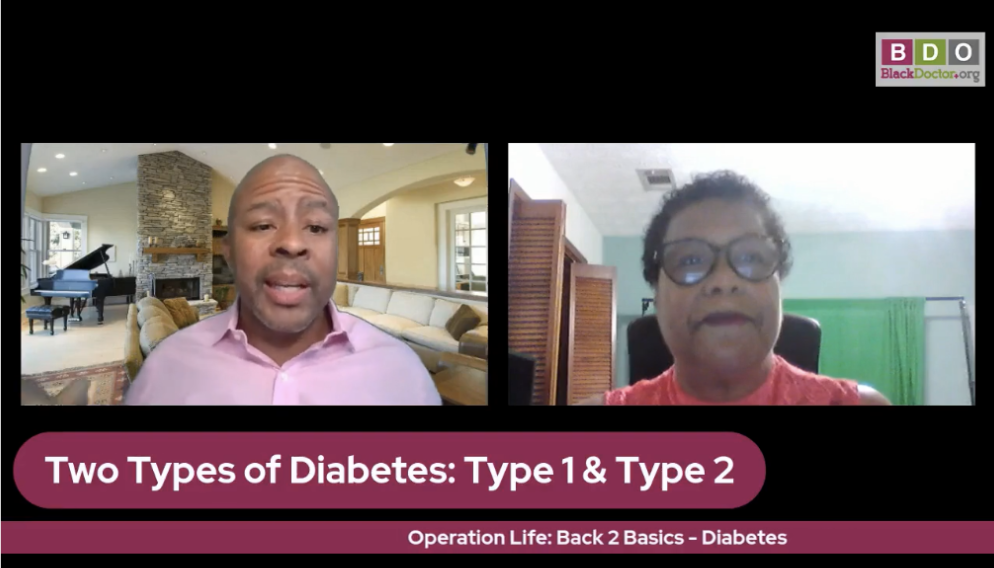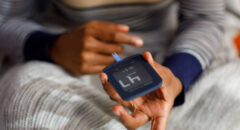
What is Diabetes?
Dr. Lenore Coleman: Diabetes is a condition that actually runs in families. It’s genetic and people don’t know that, but it actually runs in the family. If you have diabetes, then someone in your family before you had diabetes, you might not know who they were, but somebody did have it. Diabetes is an inability of the body to keep your blood glucose or blood sugar levels in control under normal levels. Okay. So then the question is, so what is the normal levels of blood sugar? And the normal levels of blood sugar are 60 to 100 milligrams per deciliter. That’s mg/ DL. So 60 to 100 milligrams per deciliter. So what happens is when we eat food, that food is broken down in your body, into carbohydrates, which is your sugars and your starches. Food is broken down into fat and is broken down into proteins.
What are the types of Diabetes?
Dr. Lenore Coleman: So in diabetes, there are two types there’s type one, and there’s type two diabetes.With type one diabetes the hormone called insulin which is created by your pancreas just stops being produced and coming out. You just become insulin deficient. That insulin is what gets the blood sugar – when you consume your food, it gets that those carbohydrates and the sugar that’s produced – out of the blood and inside the cells of the brain and the heart and your legs and your muscles, all the cells throughout your body… for those cells to work efficiently, it needs glucose. It needs the sugar from the foods that we eat. Type one, patients have to actually inject insulin because their body doesn’t have any. In type two diabetes your body has plenty of insulin.
In fact, your pancreas is working overtime, producing insulin. You have something that we call hyperinsulinemia – high circulating levels of insulin. That’s bad because what insulin does is store fat. So when you see people that have diabetes and you wonder why they’re so overweight, it’s because they usually have a lot of circulating insulin in their body, but that insulin doesn’t work correctly. So it doesn’t open up the doors to your cells to let that sugar out of the blood inside the cell. Type two patients tend to have to usually take oral medication initially to help that pancreas and their body becomes more sensitive to the insulin that they have.
Why is it important to not only eat right but to eat often?
Dr. Lenore Coleman: Eat three meals a day, and also eat three snacks a day. It’s important to eat as often as possible because otherwise your body stores everything you eat. So if you only eat one meal a day, that’s not good because your body’s not gonna burn that meal. But if you’re eating three meals a day, your body knows some more food is coming. So it burns up more efficiently. That is why we encourage three meals and then three snacks. The snacks need to be hundred-calorie snacks. You can turn over the food label and look at the back of the package and see how many calories. You wanna be really close to a 100, 110, or 120 as a snack.
There is a lot more about diabetes and eating healthy in this Facebook Live discussion. Click the link to learn more.
https://www.facebook.com/BlackDoctor.org/videos/3071064356445199








